Manus's pie in the sky, Miaoda has achieved for me...
![]() 03/27 2025
03/27 2025
![]() 599
599
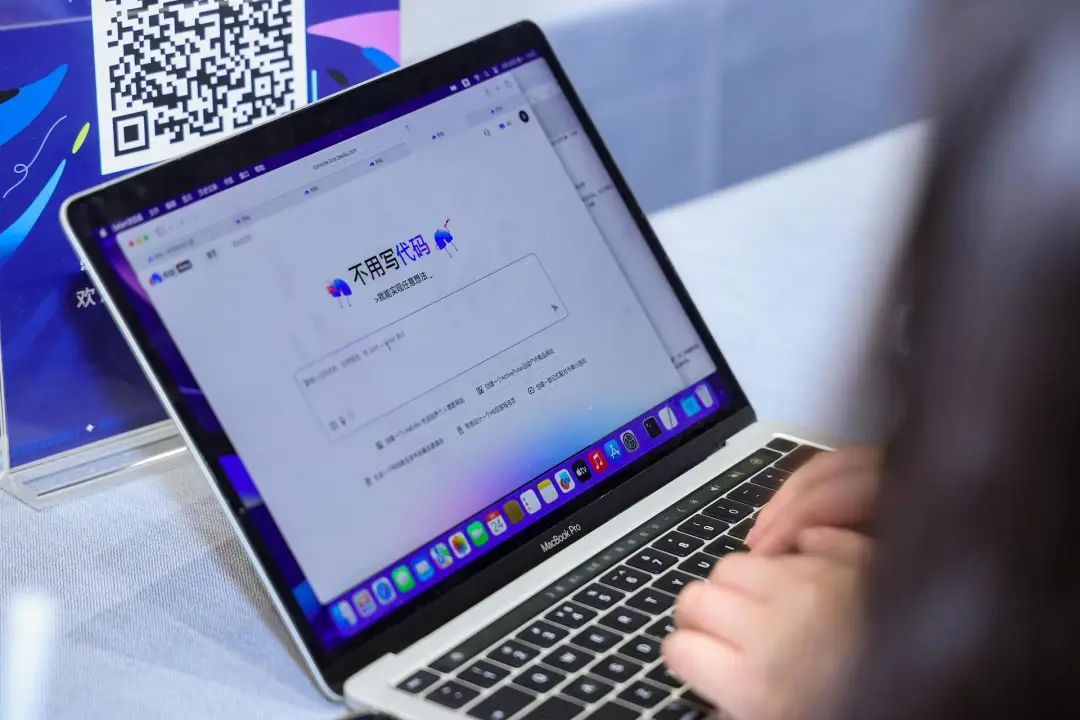
The era of everyone being a developer has arrived.
Author | Wang Bin
It is often believed that the advent of the iPhone heralded the era of mobile internet. This notion is so ingrained that the term "iPhone moment" has become a fixed phrase used to describe revolutionary changes in an industry.
But this is not accurate. The true arrival of the mobile internet era did not begin with the release of the first iPhone in 2007; rather, its more precise starting point should be the birth of the App Store in 2008.
The value of the App Store lies in significantly lowering the threshold for application development, attracting countless developers, and giving rise to an unprecedented wave of App development. Subsequently, countless unicorn companies emerged on this foundation, reshaping the entire internet era.
Now, we have entered the era of artificial intelligence. The emergence of large models has disrupted many fields, with the concept of applications being replaced by agents. More entrepreneurs are now aiming not to develop an application but to create an AI agent to change the world.
The industry's judgment on agents is so unanimously consistent that you can hardly find any opposing voices. From Huang Renxun to Li Yanhong, from Sam Altman to Andrew Ng, both the industry and academia firmly believe that AI agents will be the most important development direction for artificial intelligence at this stage.
If we compare the era of artificial intelligence to the mobile internet, we now have a large model similar to the iPhone's hardware foundation, but we still lack a low-threshold application development tool and supporting support.
On March 24, Baidu announced the official launch of Miaoda, the country's first "conversational" application development platform, which completely disrupts traditional software development processes with a combination of "no-code programming + multi-agent collaboration + multi-tool invocation." Even users without coding knowledge or programming experience can develop their own applications entirely using natural language.
While Manus is still difficult to obtain, Miaoda has been fully launched. According to Baidu, on the first day of its launch, Miaoda attracted over 20,000 users to try it out, with the number of applications created exceeding 30,000.
To some extent, this is an App Store-like innovation for the era of AI agents.
How does Miaoda disrupt traditional development?
Describing Miaoda's no-code development with words alone may not be intuitive enough. Now that Miaoda has been fully launched, I tried using it to build the official website of "On the Hill."
When opening Miaoda's official website, the first thing that catches the eye is a simple dialog box—this may be one of the most significant features that distinguish AI-era agents from past applications, which no longer require a large number of menus that users need to actively click on; conversation is the primary means of interaction.
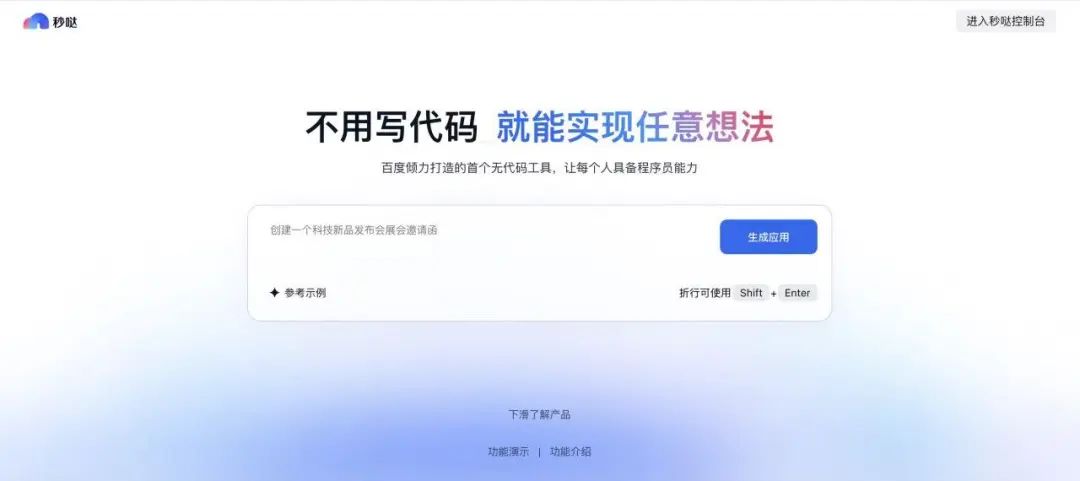
As a word worker, I don't understand coding at all and only have a vague idea of what functions and styles an official website should have. I simply wrote a website requirement and sent it to Miaoda to see what result it could give.
The requirements are as follows:
Create an official website for "On the Hill." The website's name is: On the Hill. On the Hill is a new media organization dedicated to recording technological changes, business stories, and popular culture that influence the times. The slogan is "Time is precious, read something interesting."
The website page information includes the homepage, short news, long reports, big companies, and people reports. The homepage is used to display the latest articles, popular recommendations, and special columns for navigation. Short news covers the latest technology hotspots, long reports are in-depth long articles, big companies follow major technology and internet companies, and people reports tell stories of technology figures.
The overall color scheme of the website is dominated by gray tones, with a low-saturation blue as the accent color. The overall style is simple and elegant.
After sending the requirements to Miaoda, Miaoda will further refine the user's vague requirements, including website compatibility and search functionality that were not covered in the requirements, all of which are considered in advance for the user.
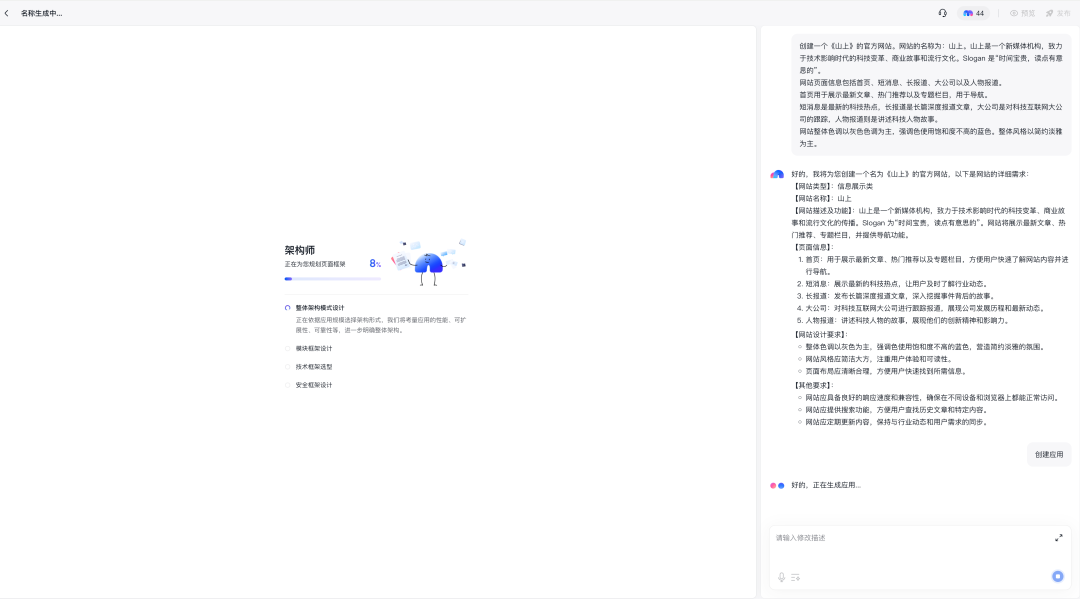
The entire website building process does not require user participation; multiple agents handle these complex operations in the background. The planning agent "Architect" helps plan the page framework, the programmer agent "R&D Engineer" writes the application code, the material designer is responsible for application beautification, and the quality inspector agent is responsible for the final security check.
In less than 3 minutes, Miaoda builds the basic framework of the official website for "On the Hill":
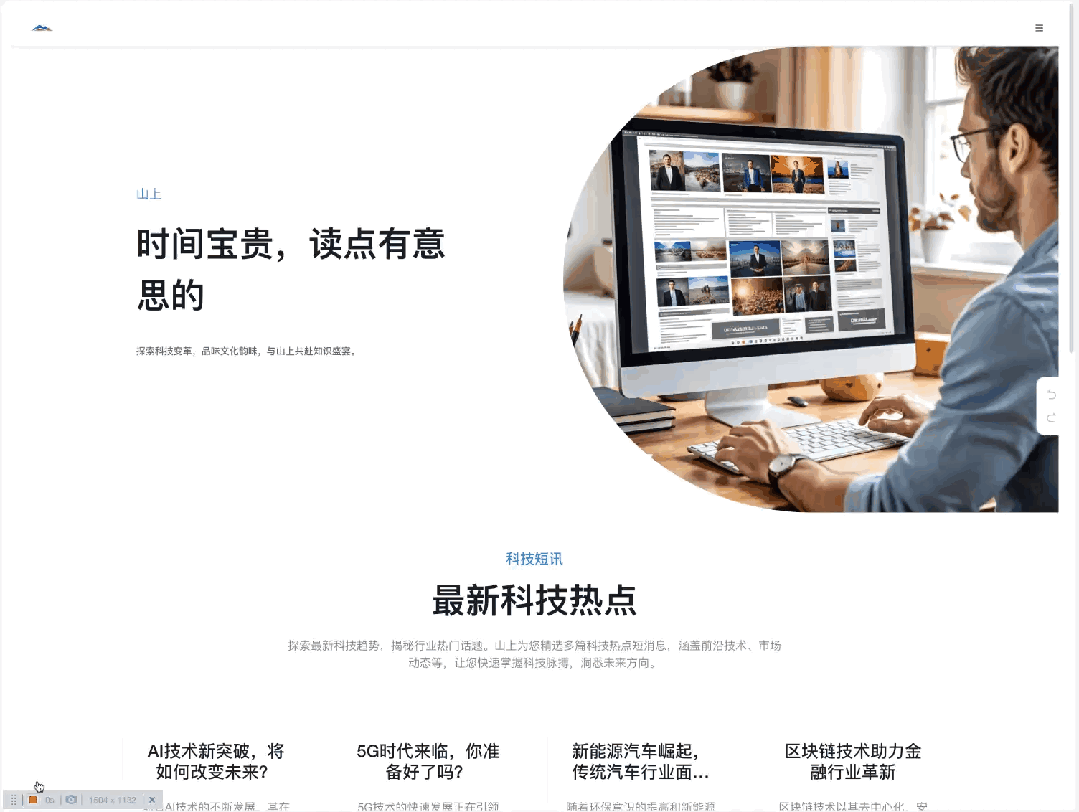
Miaoda not only created the PC version of the official website but also completed the mobile version.
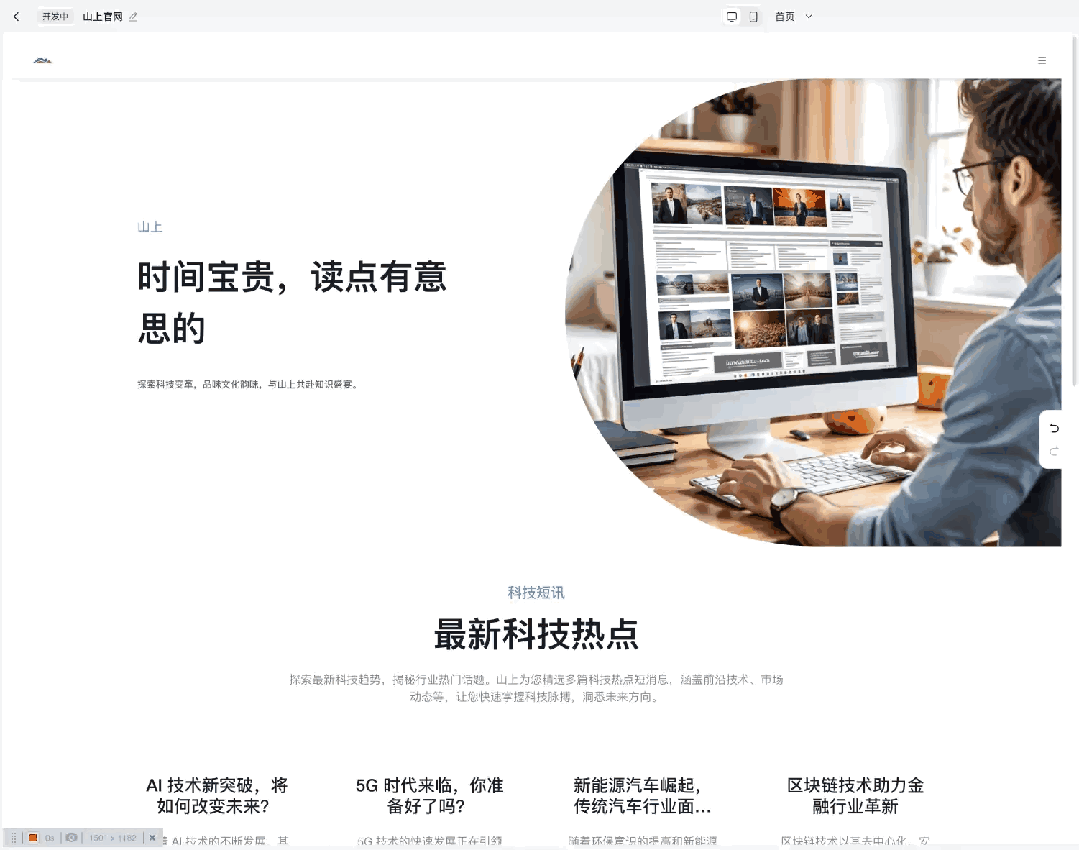
Clicking on the preview, you will find that this official website not only has a front-end page but also a back-end management system, allowing for independent updates to the website content, making it a fully formed website.
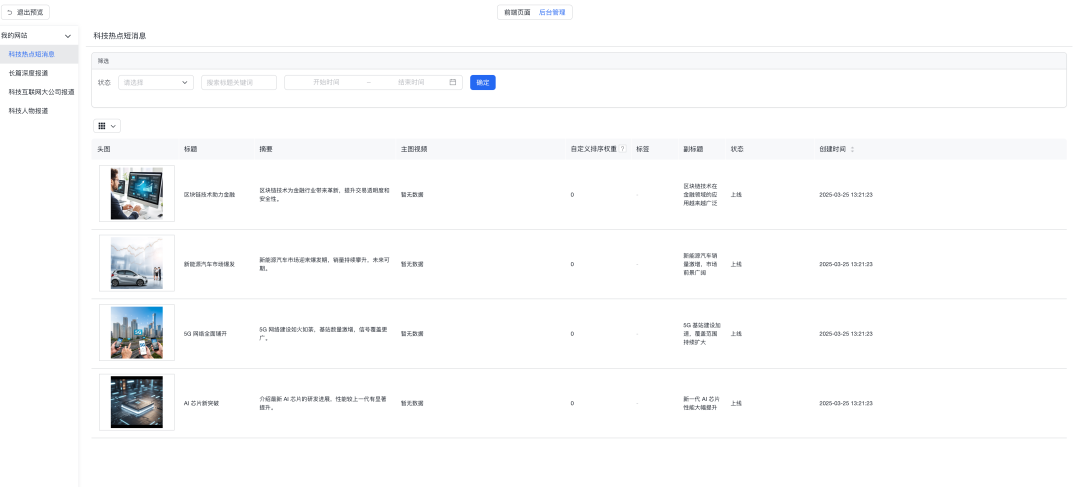
Even domain name publishing can be completed in one stop on Miaoda. Clicking on the publish page in the top right corner of the website allows you to directly bind a domain name and publish the website. If you don't have a domain name, purchase channels are also listed for you.
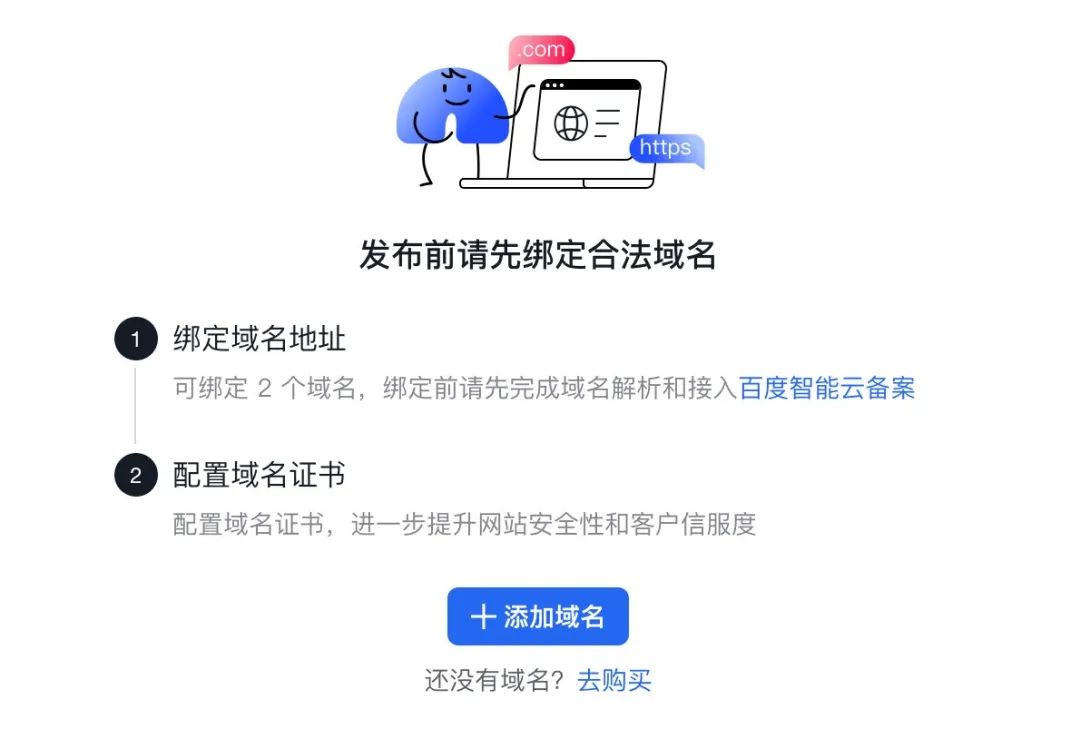
To make changes to the website, simply click on the corresponding module and inform Miaoda of your requirements in the dialog box. You can expand the selected text, translate it, or replace images, all of which can be handled by Miaoda.
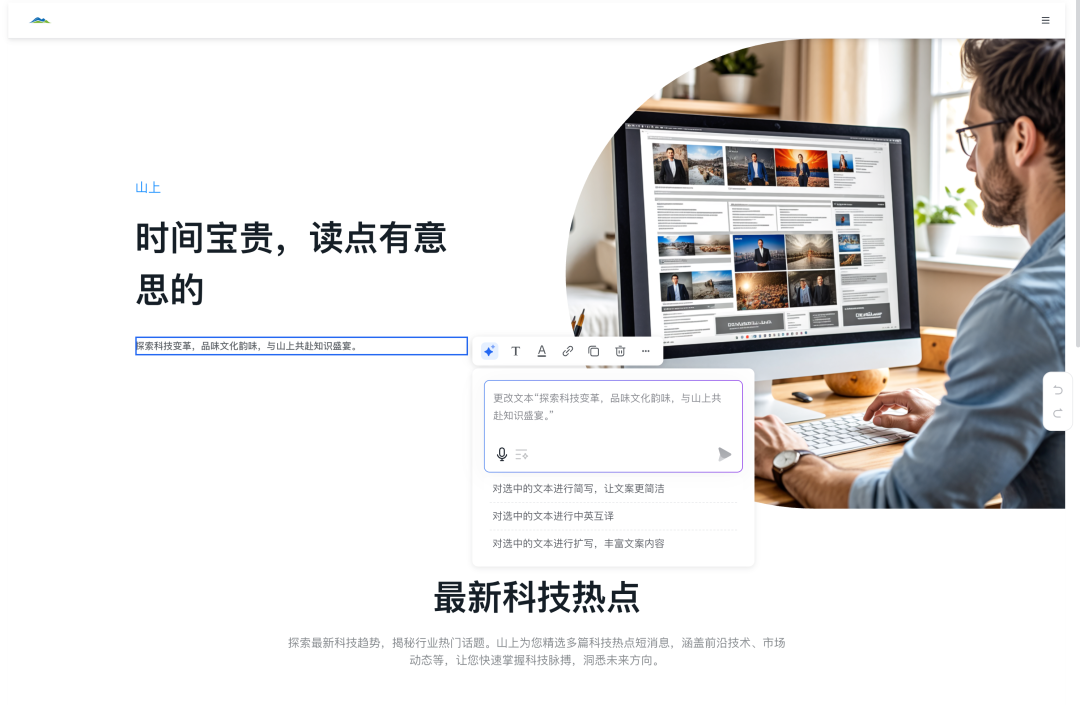
From the above entire process of building the official website of "On the Hill," it can be seen that Miaoda is completely different from the low-code development tools for programmers that you could see in the past. The entire process of building an application with Miaoda does not require users to have any coding knowledge; it only requires dialogue to complete development and launch, with natural language interaction as the core.
This means that even ordinary people can realize their applications and ideas through Miaoda, such as a simple H5 invitation or an electronic birthday card. They only need to send their requirements to Miaoda to create a beautiful invitation.
For example, set the following requirements:
I am a travel blogger and now want to organize everyone to go to the Summer Palace to enjoy the flowers. The time is March 24, 2025, and we will gather at the East Gate of the Summer Palace at 9:00 am. I hope everyone can fill out the registration form, including name, phone number, gender, and age.
As you can see in the video, Miaoda can quickly generate an event information page based on user requirements, covering images, copywriting, and layout optimization. It also integrates an information collection interface for the registration form. When users click to fill in the information, the event organizer can count the list of registrants in the backend.
You can also use Miaoda to create games, such as asking it to design a Tetris game. Just say, "Help me generate a web-based Tetris game." Within a few minutes, Miaoda has built a fully functional and front-end beautified web game page.
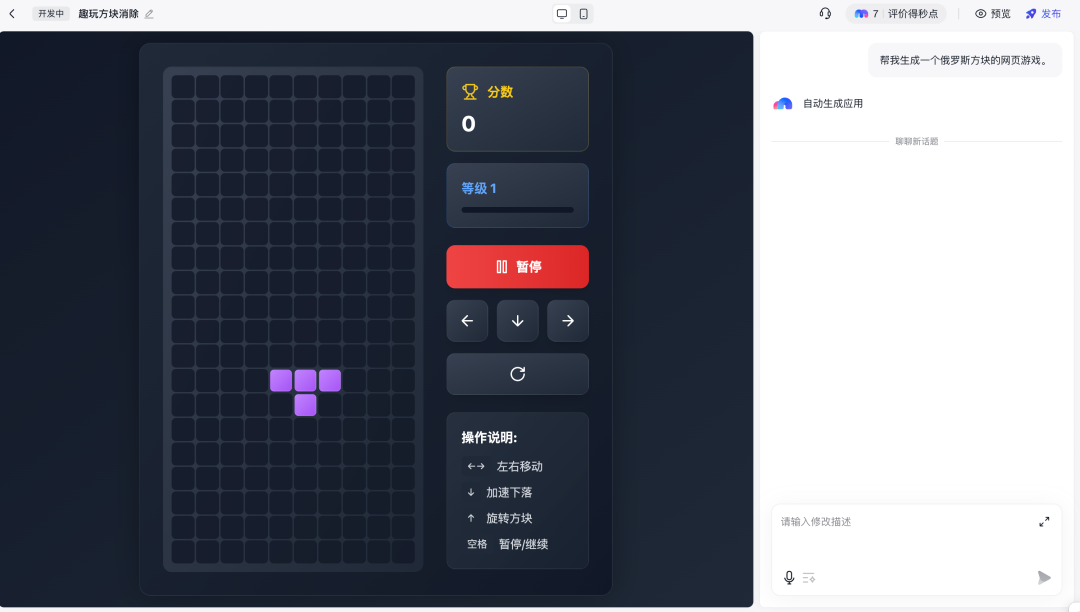
Click on the preview interface to play:

The almost barrier-free application creation process may be the reason why Miaoda was able to attract over 20,000 users on its first day of launch, with over 30,000 applications created so far.
This is just the capability that Miaoda has right after its launch. As the model's capabilities become stronger in the future, Miaoda's iteration speed will also accelerate. When Miaoda can fully rely on natural language to complete the development of complex large-scale applications, the era of everyone being a developer has arrived.
The Era of Super Individuals Has Arrived
The core value of Miaoda is difficult to summarize simply as "no-code development." Its more critical role lies in bridging the technological gap for ordinary people; you only need to have an idea to put it into practice.
This means that the barriers to software development built by code and programming in the past have been completely broken. If the birth of the App Store laid the foundation for mobile internet application development and distribution, then Miaoda is reshaping the development rules of the AI era. When everyone can become a developer, a true era of ideas being wealth may have truly arrived.
Many of today's internet giants that influence the world started with a simple idea. When Zuckerberg typed the first line of code for Facebook in his Harvard dormitory, he only wanted to create a now seemingly somewhat inaccurate "appearance rating" webpage. However, as Facebook spread virally among American universities, it eventually grew into a global internet social giant.

There are even more examples of this in the mobile internet era. Cheng Wei founded Didi with the initial experience of not being able to get a taxi late at night. Kuaishou initially started as a GIF creation tool, and Xiaohongshu's original form was just a collection of overseas shopping sharing PDF documents.
However, ordinary people still have a certain gap from these internet entrepreneurs—most people do not have programming or coding knowledge, and they are not very good at searching for patented technologies. What most people have is only a vague idea or a thought.
The birth of large models eliminates these technological barriers. Sam Altman, the founder of OpenAI, has repeatedly emphasized to the public that large models are of greater value to ordinary people. His more famous quote is that AI will give rise to a new entrepreneurial model, namely solo unicorn companies, where one person can start a technology company valued at $1 billion.
Miaoda further breaks down the technical challenges facing ordinary people—most general large models do not yet have the ability to create applications directly from ideas. Most AI entrepreneurs who have emerged in the past two years are also technology professionals with programming skills. Whether it's the recently popular Manus in China or Perplexity AI, which is valued at over $1 billion, their founding teams have strong technical backgrounds.
With the help of Miaoda, ordinary people no longer need to worry about lengthy coding knowledge or think about how to invoke other agents to reduce their workload. They only need to dialogue, modify, and review, and their ideas can be realized.
Miaoda integrates the application of many technologies behind it. Past low-code development tools were more oriented towards programmers, and their output was also a long string of code with various symbols, which required a certain technical background to understand. Miaoda, on the other hand, is truly end-to-end no-code generation.
In technical terms, Miaoda's development is a combination of LGUI, which supports both LUI natural language modification for developing applications and GUI visual modification.
Last year, when Li Yanhong first demonstrated Miaoda to the public, he called it "the most complex multi-agent collaboration tool in human history so far." This is not an exaggeration.
There are multiple agents that users can perceive in the frontend alone, including planning agents, copywriting agents, designer agents, and programmer agents, which respectively handle each subdivision process in the application development process. Through collaborative work, they form an end-to-end solution covering the entire process from requirements analysis to final delivery.
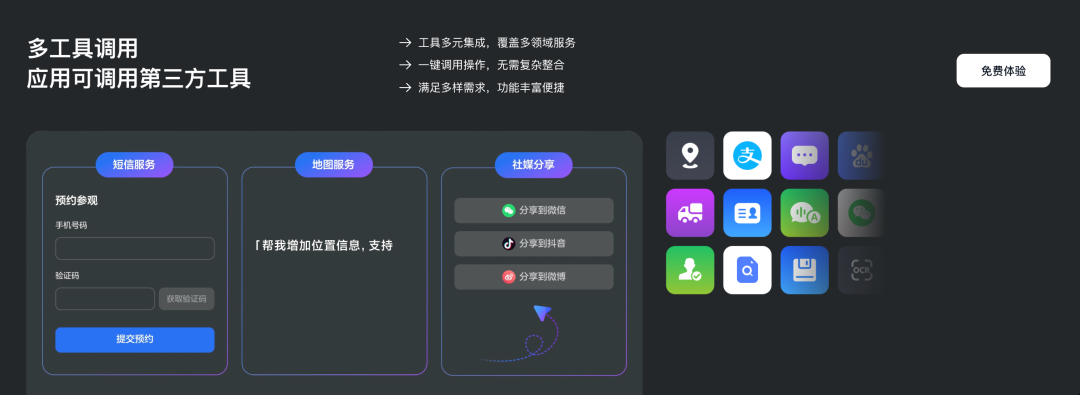
Besides internal agent collaboration, Miaoda can also enable multi-tool invocation to expand its functions and application scenarios. For example, based on ERNIE Bot's tool invocation capabilities, Miaoda can systematically invoke search, iRAG, and third-party APIs to fulfill diverse needs in complex scenarios.
An era of super individuals belonging to ordinary people may have truly arrived.
Manus focuses on applications, while Baidu aims to build an ecosystem
Ordinary Chinese people first became aware of agents perhaps due to the recent popularity of Manus. However, the AI industry has been emphasizing the upcoming explosion of agents since last year. For instance, at Baidu's Create AI Developer Conference early last year, Robin Li stated that agents would become the most mainstream way to use large models in the future.
In an internal company sharing session mid-last year, he explained that the most notable feature of agents is their low threshold, making them accessible to everyone, while simultaneously having a high ceiling, allowing for the creation of highly valuable content.
He claimed that agents are currently the only visible path to turning generative AI into a large ecosystem. Other technologies, no matter how fancy or widely applied, are just points or at most lines. Only agents can form a surface, engaging the majority of people. Therefore, he continuously emphasizes the role of agents and attracts more people to participate.
Baidu's full-scale launch of Miaoda this time can be seen as one of Robin Li's paths to engage more people. However, compared to the recently popular Manus, there are still significant differences between the two.
Manus is an excellent engineering innovation application born from the iteration of large model technology, but its primary goal is to assist people in completing existing work tasks. For example, Manus demonstrates in videos analyzing resumes of multiple interviewees, analyzing real estate information in New York, and comparing stock information of NVIDIA, Marvell, and TSMC.
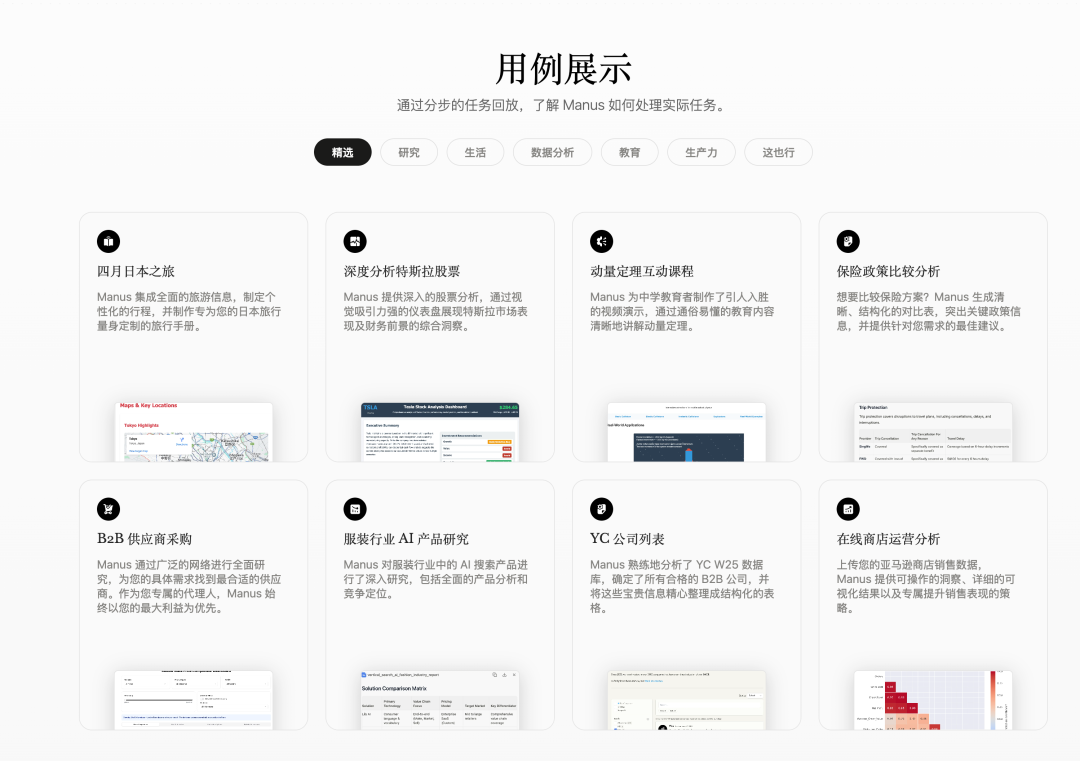
Miaoda is more like an underlying tool that helps you realize innovative application ideas. It serves as an infrastructure for AI applications rather than an AI application that completes task demands. You can flexibly create your own applications based on your needs, invoking different agents, retrieval technologies, and capabilities of various large models.
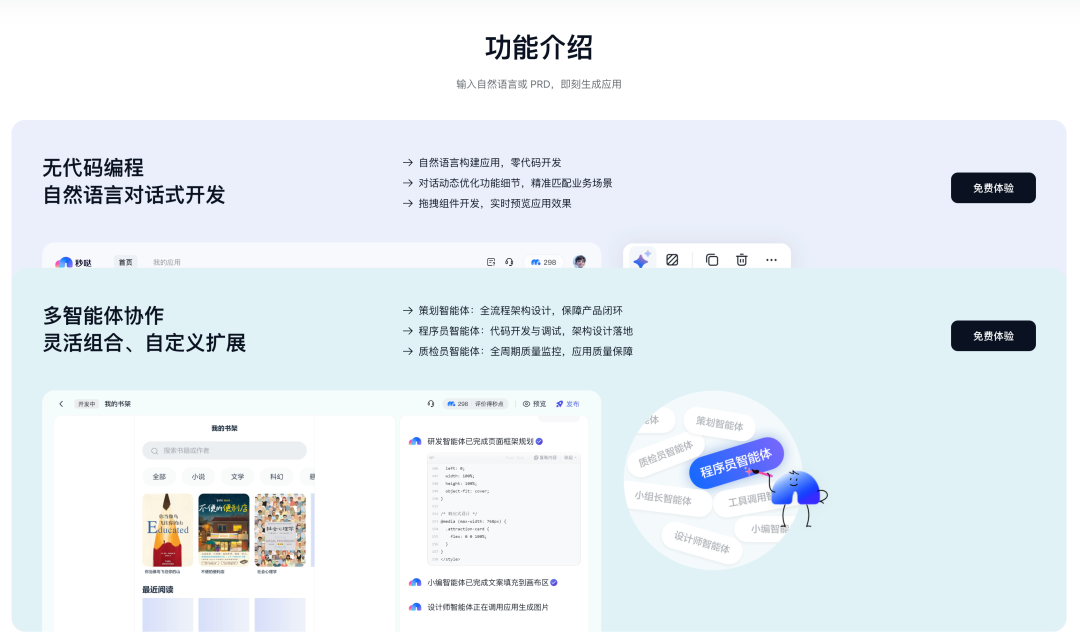
In other words, Manus focuses on applications, while Baidu aims to build an ecosystem. Within the broader context of the agent ecosystem, Miaoda is just one link.
In fact, Baidu has established a complete chain from development to application centered around agents. Miaoda addresses the development threshold, enabling ordinary people to become developers by providing a full set of development tools.
Its foundation is the base model support provided by ERNIE Bot, encompassing how to understand users' natural language into detailed application requirements, how to invoke and coordinate different agents, and more. Baidu Cloud Intelligence's Qianfan Large Model Platform offers model application management and development services, which can help Miaoda fulfill more customized needs in the future.
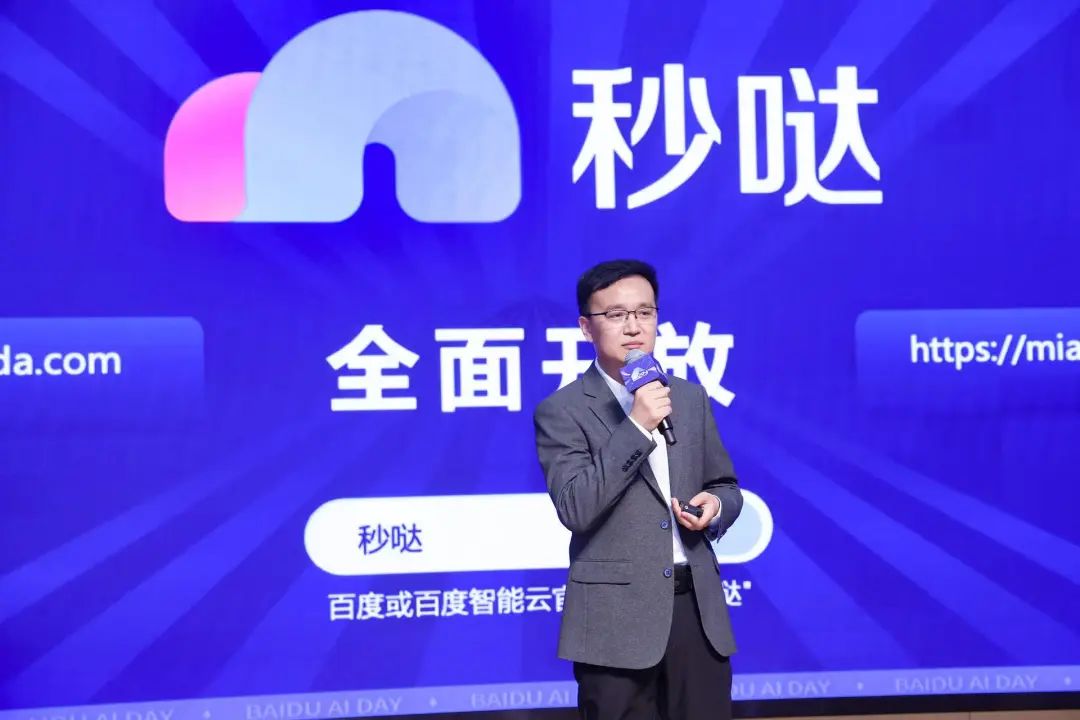
Ultimately, Baidu Search can provide channels for agent distribution, helping agents reach a broader audience. At last year's Baidu World Conference, Robin Li already demonstrated cases of empowering search through corporate agents, role agents, tool agents, and industry agents. In Robin Li's words, agents are the transformative force in the search industry.
This is why Baidu's ultimate goal is to build an ecosystem rather than just applications. Just as the birth of the App Store decades ago promoted the prosperity of the mobile internet ecosystem, Baidu aims to reduce the threshold for application development through Miaoda, making the AI agent ecosystem more prosperous and robust.
All rights reserved by Shanshang. Reproduction without authorization is prohibited. Contact email








